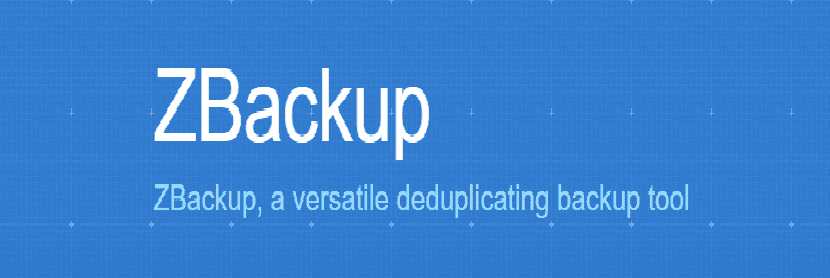
When it comes to backing up your data it is common for end users not to do so. So when a hard drive is coming to an end or just stops working, we all lose our minds.
This is when information backup tools come into play and honestly having a portable hard drive with backups of our information is the best. But it is necessary to make use of a tool, here where we are going to talk about Zbackup which is a backup tool, based on the rsync tool.
About Zbackup
The program supports any format, so you can add practically all types of files to it, including proprietary formats and even raw disk images.
Using Zbackup it is based on creating incremental backups, that is, the software will store the duplicate regions in it bakcup created only once and this will take care of using it again when necessaryIn this way, the program will also reuse any data found in any previous backup.
Thus, only new changes are stored, since the files are not very different, the amount of storage required is very low.
This is a very good feature since other similar softwares tend to only create backup copies by "date" which in a matter of time end up filling the space destined for data backup.
It is important to mention that in Zbakcup any of the previously stored backup files can be read in their entirety at any time.
Features
The program has the following characteristics:
- Parallel LZMA or LZO compression of stored data
- Built-in AES encryption of stored data.
- Ability to erase old backup data
- Using a 64-bit rolling hash, keeping the number of collisions at zero
- The repository consists of immutable files. No existing file is modified
- Written in C ++ only with modest library dependencies
- Ability to exchange data between repos without recompression.
How to install Zbackup on the different Linux distributions?
zbackup is a tool that is available in most of the repositories of Linux distributions so its installation is quite simple.
If they are Debian, Ubuntu, Linux Mint and derivative users can obtain this application by installing it directly from the repositories.
So you can install the application with your software center, synaptic or from the terminal by typing the command:
sudo apt-get install zbackup
Those who use Arch Linux, Manjaro Linux, Antergos or any other derivative of Arch Linux You can install this application from the AUR repositories. Only they must have the AUR repository enabled and an AUR wizard installed.
If you do not have it, you can visit the following article where we explain how to do it.
To perform the installation in a terminal we are going to type the following command:
yay -S zbackup
While for those who are Fedora, CentOS, RHEL users and any derivative of these, we are going to install by executing the following command in a terminal:
sudo dnf install zbackup
Finally, for the case of those who are users of any version of openSUSE They can install this tool on their systems by typing the following command in a terminal:
sudo zypper in zbackup
Basic use of Zbakcup
Once the tool is installed in our systems, we can start using it. To initialize the tool we are going to execute the following command:
zbackup init --non-encrypted /ruta/de/backup/
En where you will replace "/ path / of / backup /" by the path where you will save your backups.
Once this is done, we can now execute the zbakcup command together with any other to perform our backup.
A practical example is If we want to back up our document folder, we can do this in the following way:
tar -c /home/usuario/Documentos | zbackup --silent backup /ruta/de/backup/$DATEDIR/nombre-de-bakcup.tar
Where they will only replace the routes you have.
Another example is if we only want to back up one file:
cat /ruta/archivo.txt | zbackup --silent backup
Finally, to restore a backup we do it with:
zbackup restore /ruta/de/bakcup/completa
You can check more options of use In the following link.